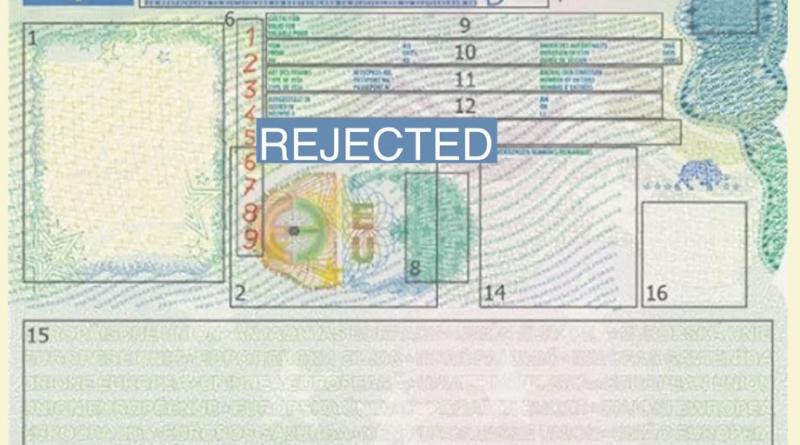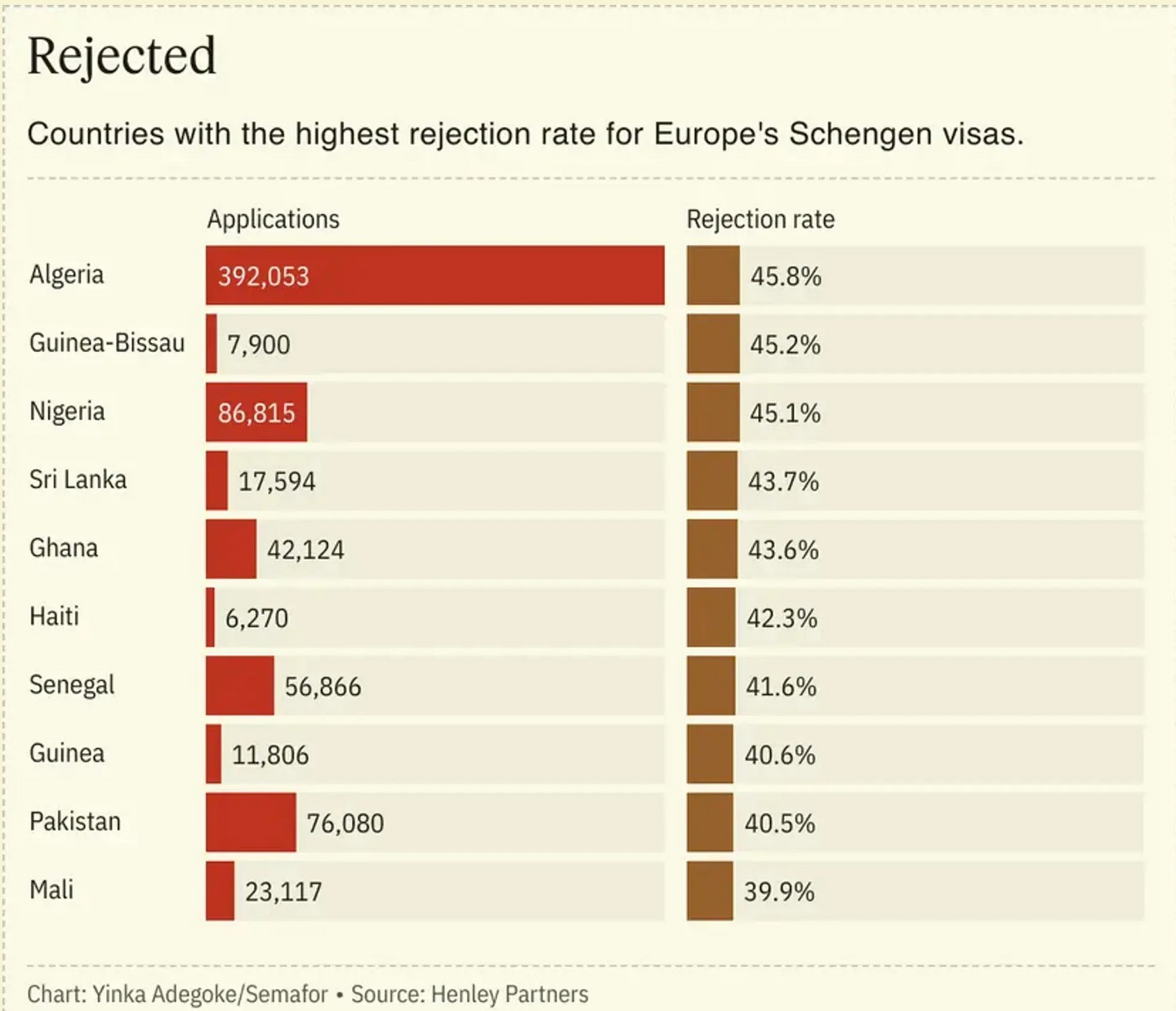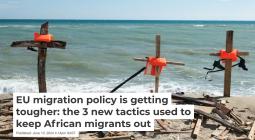Higher EU visa costs are set to boost earnings from rejected Africans

The European Union is set to generate millions of euros more from the high rejection rates of visa applications by African visitors with a new increase in non-refundable fees.
Citizens of the 26 member states within Europe’s Schengen area have unhindered borderless access within the area, while most travelers from elsewhere require visas. A 12.5% price hike that takes effect on June 11 increases the cost of a short-term (90 days) visa application to €90.
But while the price hike applies equally to all non-EU residents who require a Schengen visa, it raises the prospect of the bloc making disproportionately more money from its rejection rates for applicants from Africa, analysts say.
Of the €130 million the EU earned in 2023 from rejected visa applications, about 42% of that was from applicants living in Africa, even though the continent accounts for 24% of Schengen visa applications, according to London-based research firm LAGO Collective. Prospective visitors who apply from Ghana, Senegal and Nigeria receive rejection rates of between 40% and 50%, LAGO estimated, based on data from the European Commission’s migration and home affairs office.
“We found a relationship between the GDP of countries and rejection rates for short-term visas,” Marta Foresti, LAGO’s founder, told Semafor Africa. A similar rejection trend in 2024 with the new price would deepen long-standing inequality of outcomes between consumers paying for the same service from high and low-income countries, Foresti said.

African migration to Europe is aggravated by factors like the effects of climate change on resources and productivity, scarce economic opportunities in struggling economies, political instability, and violent conflict.
While these encourage dangerous attempts to reach Europe across seas and deserts, most African migration is via “regular channels,” the Africa Center for Strategic Studies in Washington DC notes.
Yet Africans applying to visit Europe for short-term stays, such as business engagements or conferences, continue to face a stumbling block.
Average rejection rates for African applicants are generally 10 percentage points higher than the global average, Mehari Taddele Maru, a researcher at the EU-owned European University Institute in Italy, found. Seven of the top ten countries with the highest rejection rates for Schengen visa applications in 2022 were in Africa.
Alexander’s view
The EU’s more expensive visa and its potentially disproportionate impact on Africans comes as the bloc takes a tougher stance on migration.
New rules approved by the EU Commission in April impose a higher standard for screening non-EU nationals at borders, including the collection of biometric data, and health and security checks. Border fences set up by member states within the Schengen area have become longer in the last decade, stretching from 315 km to 2,048 km as of 2022.
Higher visa prices could be another type of fence, which when combined with high rejection rates, will continue to enrich European consulates at the expense of residents of low income countries who nevertheless have legitimate reasons to be in Europe.
Africa’s high rejection rate is sometimes explained as a consequence of visitors overstaying their visas. But “there is no evidence to suggest that a higher rejection rate leads to a decrease in irregular migration or visa overstays,” Maru argues. In essence, an unexplained bias against Africans is at play.
The costs of rejection to African entrepreneurs, career professionals, artists and other seekers of the EU’s short-term visa calls for a reform of the approval process, Foresti told me. Consulates with high unequal outcomes should review their decision-making to ensure “systematic discrimination” against some countries isn’t an underlying cause.
And should some EU members enforce high rejection for short-term visas to dissuade overstays by residents of particular African countries, more paths to legal migration should be considered, she argued.




